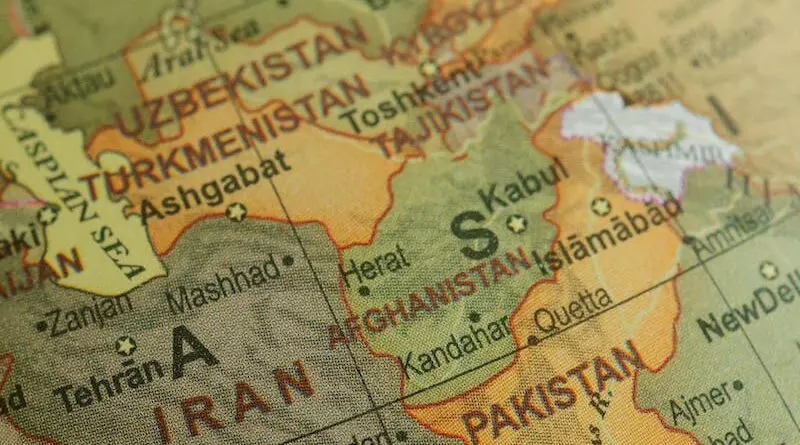The Perilous Path Of Negotiating With TTP: Lessons From History And The Way Forward For Pakistan – OpEd
By Asad Ali
The annals of history are replete with lessons that, if heeded, can guide nations away from perilous paths. One such lesson comes from the era of Prime Minister Neville Chamberlain, whose policy of appeasement failed to prevent war despite the UK’s concessions to Germany.
Drawing parallels, Pakistan’s policymakers find themselves at a crossroads in dealing with the Tehreek Taliban Pakistan (TTP). Their strategy, seemingly rooted in hope and assumptions, echoes Chamberlain’s misguided faith in negotiations. As a new government seeks to implement structural economic reforms and stabilize the political landscape, the escalating TTP attacks call for a robust response against terrorism. Pakistan risks unleashing a greater threat if it continues its negotiation-centric approach with TTP.
The TTP shares both cultural and ideological ties with the Afghan Taliban. The latter’s reluctance to completely eradicate TTP from Afghan soil aligns with their strategic interests. For the Afghan Taliban, severing ties with TTP would mean distancing themselves from a part of their identity. Moreover, supporting TTP helps them maintain a strategic advantage, keeping the Islamic State of Khorasan (IS-K) in check. According to the 33rd report to the UN Security Council Committee by the ISIL and Al Qaida/Taliban Monitoring Team, the TTP has received ‘significant backing’ from the Afghan Taliban. Given this intertwined relationship, any peace agreement brokered by the Afghan Taliban is unlikely to succeed, as the TTP thrives on violence and instability that destabilizes Pakistan’s social fabric.
Pakistan’s past attempts at negotiating peace with the TTP have proven counterproductive, leading to short-lived agreements. As Asfandyar Mir, a senior expert at USIP, points out, even brief deals with TTP have bolstered their position. Post-US withdrawal, Pakistan once again embarked on negotiations with TTP, following a pattern of failed peace agreements from 2007 to 2014. These negotiations often became a tool for TTP to extract concessions, primarily the release of captured terrorists, rather than genuine efforts for peace. Such releases, often secured on unfulfilled promises by the TTP, perpetuated a destructive cycle, rendering negotiations ineffective.
Complicating matters further is the TTP’s decentralized structure, with various factions pursuing different objectives independently. This diversity within TTP makes negotiations challenging for Pakistani policymakers. The emergence of groups like Tehreek-e-Jihad Pakistan (TJP), allegedly behind seven major recent terrorist attacks in Pakistan, further muddies the waters. While some view TJP as a distinct entity, Pakistani agencies attribute these attacks to TTP under a different name. This ambiguity fosters a dangerous narrative, dividing the Taliban into ‘good’ and ‘bad’ categories, rather than addressing them as violent entities aiming to further their political goals through terror. Some Pakistani experts advocate for continued dialogue, but negotiations risk legitimizing TTP’s crimes against the state and undermining the rule of law.
First and foremost, Pakistan needs a coherent strategy aimed at bringing all violent elements to justice. This may necessitate distancing from the Afghan Taliban, given their unequivocal support for TTP. Secondly, Pakistan should engage with the international community, highlighting the Afghan Taliban’s support for TTP as a violation of the Doha Agreement. Garnering international support is crucial in isolating and pressuring the Afghan Taliban to sever ties with TTP. Thirdly, Pakistan can employ trade sanctions as a punitive measure against the Afghan Taliban, compelling them to abandon support for TTP networks.
Fourthly, enhancing intelligence-based counter-terrorism operations within Pakistan is essential to identify and neutralize TTP operatives effectively. Lastly, bolstering border control measures and undertaking targeted operations in Afghanistan can disrupt TTP operations, weakening their capabilities significantly. Addressing terrorism in Pakistan is paramount, as it remains a significant impediment to the nation’s socio-economic progress. To achieve lasting results, Pakistan must focus on countering extremism, eradicating the ideological appeal of terrorist organizations, and employing both kinetic and non-kinetic strategies to compel TTP to surrender on the government’s terms.
In conclusion, history offers valuable lessons about the perils of appeasement and the need for decisive action against threats to national security. Pakistan’s policymakers must learn from these lessons, abandoning the futile path of negotiations with the TTP and adopting a comprehensive strategy to combat terrorism effectively. Only then can Pakistan hope to achieve peace, stability, and prosperity for its people.

